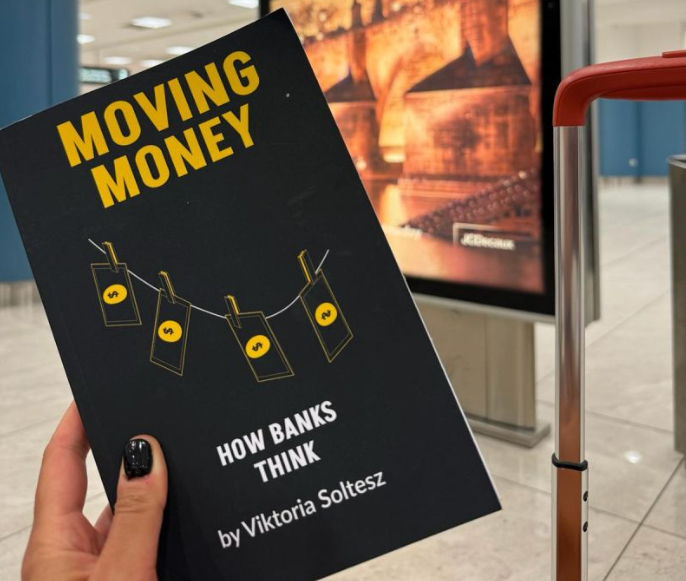MOVING MONEY — HOW BANKS THINK AND WHO YOU CAN TRUST

Investing your money wisely is a big decision, and part of making that decision involves knowing who you're dealing with. There are several brokers and investment firsm, but how can we know how they handle your money?
I am a payment consultant, banking expert and tax advisor. I started PSP Angels Group over 6 years ago, with the aim to help companies understand all their payment and banking options and plan their payment flows in the most cost effective and least risky way. We know what's happening in the banking world: what's new, what’s working, what’s risky, who to trust and who delivers.
We understand the payment market inside out and have a huge network of different banks and financial providers, so we can give an accurate picture of all the different payment and banking options. We know the payments market’s ever-changing risk appetite and licensing requirements, as well as what fees are currently offered. We help our clients make informative decisions about the possible options, prices and risks. Within our personalized payment consulting services, we set up an overall payment plan, help to move funds between countries, reduce real banking and payment risks, re-negotiate current fees to match the lower market rates, optimize tax and cash flow, and assist with the overall payment/banking setup.
Helping our clients to take their business globally, we explain what country uses which types of payment options and we also refer them to local payment providers for safer and cheaper banking and financial products. We have several partners who offer payment solutions, alternative payment methods, mobile payments, wallets, open banking, vouchers, crypto payments, chargeback and fraud tools, cashiers, and correspondent banks, based on individual circumstances and needs.
When it comes to investing with a broker or asset manager, one crucial detail that often gets overlooked is the quality and variety of payment methods they offer, which seems like a minor factor but can significantly reflect the integrity and reliability of a company. High-tier banks and reputable payment service providers conduct rigorous due diligence on the companies they agree to service, ensuring these entities meet a high standard of operational compliance and ethical business practices. Therefore, encountering a brokerage or asset management firm that provides options for funding your account through obscure or offshore bank accounts, or presents a payment portal that appears unprofessional and sketchy, should immediately raise concerns.
Such red flags may indicate that the firm has not been able to secure partnerships with trusted financial institutions, possibly due to issues related to licensing, adherence to Anti-Money Laundering (AML) standards, or Know Your Customer (KYC) policies, which are crucial for managing the assets deposited by clients.
I advise all investors to meticulously inspect the deposit methods available and investigate the reputation of the banks or payment providers connected with the investment firm as part of their due diligence process. Payment and banking are fundamental initial steps for every financial institution; thus, ensuring the security and validity of their investment partner through their provider is an effortless yet highly effective action, which also sheds light on the level of professionalism they can expect from their broker in the long run.
Additionally, many investors might not be aware that brokers, asset managers, and other entities handling investments are required by law to disclose their licensing information and regulatory oversight on their websites, a mandate designed to foster transparency and trust.
The absence of such information or the presence of a license from a jurisdiction known for its lenient regulatory framework should be a signal for potential investors to exercise caution. Lesser-known (perhaps offshore) regulatory bodies might not impose all the necessary, stringent rules on how investment firms manage their clients' assets. Loser rules might potentially allow for riskier investment strategies or less reliable payout policies.
The underlying principle behind regulatory strictness is to protect the interests of the investing public, safeguarding them against the repercussions of high-risk investment decisions made without a full understanding of the potential outcomes. Stricter regulations typically result in reduced leverage options and more conservative investment conditions, which, while potentially limiting in terms of immediate returns, serve to prevent significant losses that could impact the investor and, by extension, the broader financial system.
Rules are necessary not only to safeguard the investors, but to minimise the potential damage on the society, too. Some of the ramifications of unregulated or poorly regulated investment activities extend beyond individual losses, potentially necessitating governmental intervention to rectify widescale financial disruptions, thus imposing a burden on the societal fabric as a whole. Governments and regulatory bodies aim to prevent such scenarios by setting boundaries on investment practices, ensuring that individuals do not place themselves in untenable financial positions through overly risky investments facilitated by brokers operating under lenient regulatory jurisdictions.
Such measures are not only about protecting individuals from their own potential misjudgements but also about preserving the stability of the financial system and the economic well-being of society at large.
My work – and the recognition like the awards we've won – is all about bringing that transparency and safety to the forefront. When you're about to make an investment, take the time to check out the payment methods and the banking partners of the firm. Make sure they're up to standard and that you're comfortable with how they operate. This kind of due diligence is key to making smart investment choices. It's about being informed, staying safe, and looking out not just for your financial future, but for the financial health of the community around you.
To gain more insight about payment and banking, or understanding „Moving Money – How Banks Think” please read my book, which is available on all Amazon stores.
www.movingmoneybook.com


